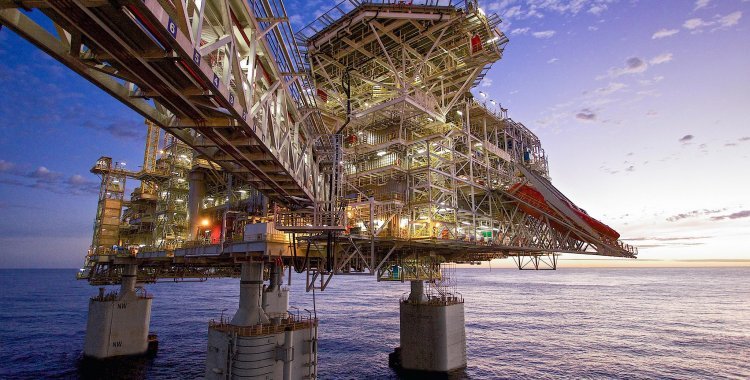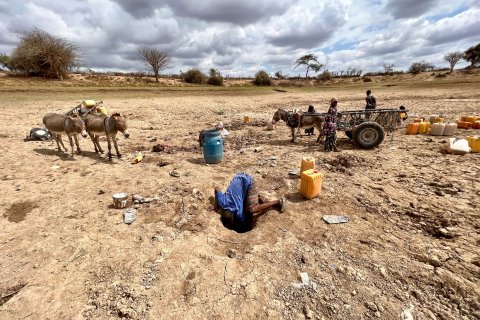In an analysis of the General State Budget (OGE), already delivered to the National Assembly, the group of academics emphasizes that, in terms of resources, it considers "oil activity [price and quantity produced] to be optimistic".
Therefore, Cedesa warns of the importance of "having a contingency reserve for drops in both price and production" of that energy source, which is also Angola's main source of revenue.
The OGE proposal is based on a barrel of oil at 75 dollars.
As for the budget proposal as a whole, Cedesa considers it to be "evident that there is an economic policy effort, in the sense of having financial rigor and budgetary control in accordance with the injunctions of the International Monetary Fund, giving the country external credibility in economic terms".
In addition to this financial rigor, "which cost João Lourenço a lot in August 2022", in the elections in which the President was re-elected for a second term, "there is attention to the social sector, trying to mitigate the financial bias", he also defends that entity.
For Cedesa, the budget proposal is correctly formulated, but the issue that needs attention is its "concretion and execution".
"It is essential that social spending reaches those in need and frontline structures: doctors, nurses, hospitals, schools, teachers, etc. highlights.
"In other words, it is imperative that budgeted public money is not diverted. And then it becomes imperative to control the allocation and application of funds. The task of good management and governance is the most important in the 2023 OGE", he adds.
With regard to Angola's public debt vis-à-vis China, and other entities, the group of academics argues that "it is necessary to carry out certain forensic audits" and suggests that, in the event that something similar to an "odious debt" is envisioned, that Angola activate " profound renegotiation mechanisms".
"Ultimately, the matter ['odious debt'] would have to be taken to the United Nations under the terms of Articles 1, 3 and 14, among others, of the Charter of the United Nations in order to create a consensus in international law on the subject", he points out.
Incidentally, Cedesa considers that the Chinese loan for 2015/2016 is one of the issues that "deserve more attention and have a specific approach".
Academics maintain that "a part of the Angolan public debt is what is doctrinally called 'odious debt'".
Under international law, odious 'debt' is a legal theory which holds that a national debt incurred by a political regime in a country, for purposes that do not serve the interests of a nation, should not be enforceable.
Therefore, these debts are considered as personal debts of a regime that incurred them and not State debts. In some respects, this concept is analogous to the invalidity of a contract signed under duress.
The OGE for 2023 estimates revenues and sets expenses of 20.1 billion kwanzas. The Ministry of Finance highlighted, when presenting the OGE, that the two main objectives of budgetary policy are the "continuation of national economic growth and the continuation of prudent budgetary management".
The budget balance will have a surplus of 0.9 percent of GDP, consolidating the evolution of 2021 and 2022. The ratio of public debt to Gross Domestic Product (GDP) is decreasing, with projections for 2022 pointing to a ratio of 56.1 percent of GDP, clearly lower than the 128.7 percent already registered.
The executive hopes that the combined trend of decreasing public debt and inflation, estimated at 11 percent at the end of 2023, will finally lead to a decrease in interest rates, promoting economic growth.
Some tax easing will be maintained, such as the reduction of the VAT rate on basic basket products, which fell from 14 percent to 5 percent, and in hotels and tourism (14 percent to 7 percent).
In terms of allocation of expenditure, 23.9 percent are budgeted for the social sector, 10 percent for the economy, 8.6 percent for defence, security and public order and general public services account for 12.5 percent.
According to the government, social expenditure represents the largest share of expenditure in the OGE, absorbing 43.5 percent of primary fiscal expenditure and 23.9 percent of total budget expenditure, with an increase of 33.4 percent compared to the OGE 2022.
The OGE assumes that in 2022 the real Angolan GDP (Gross Domestic Product) should have a positive real growth rate of 2.7 percent, above the 2.4 percent initially forecast in the 2022 OGE, and for this year it is expected if a real growth of 3.3 percent.







